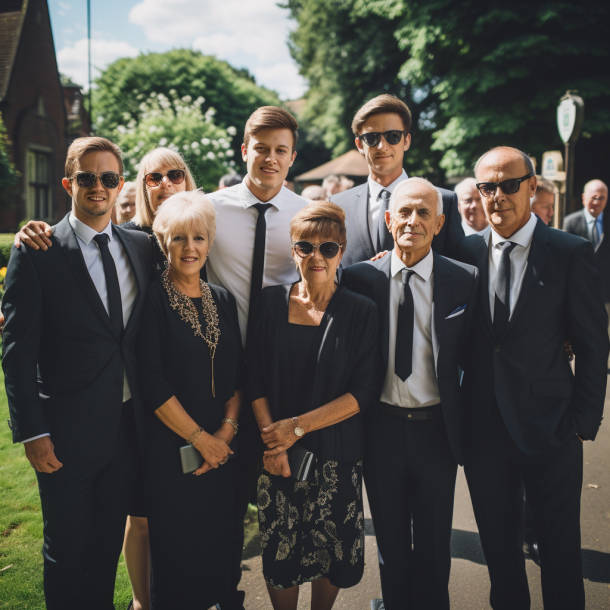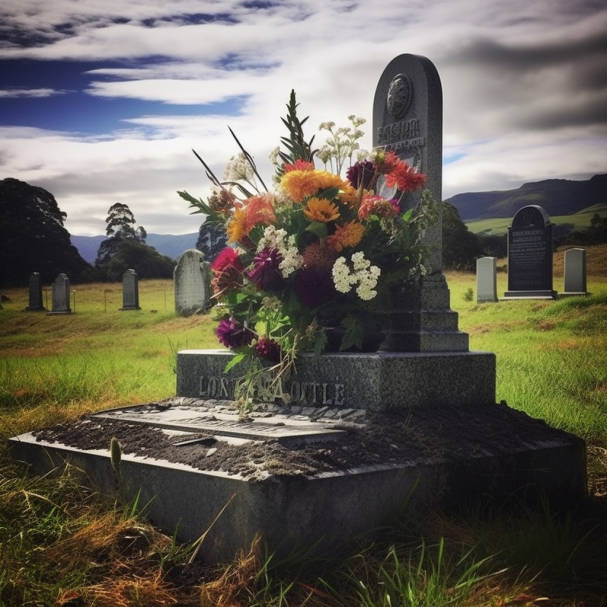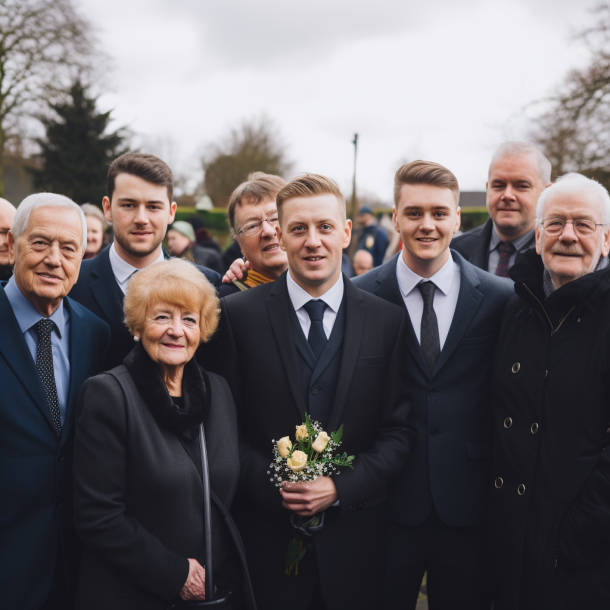Pre-planning your funeral
Explore the ins and outs of funeral pre-planning in New Zealand. Learn about the benefits, financial considerations, and steps to personalise your final farewell
The notion of pre-planning a funeral might seem a bit somber and uncomfortable. Pre-planning your funeral is a final expression of love, care, and responsibility, ensuring that family members can grieve without the added stress of organising and making challenging decisions amidst their sorrow.
Funeral pre-planning offers emotional relief to the bereaved, alleviating the logistical and decision-making burdens during a time of grief. By taking charge of these arrangements ahead of time, individuals grant their families the freedom to focus on remembering and celebrating shared memories and life experiences. It is an opportunity to ensure one’s personal wishes and preferences are honoured, allowing for a service that genuinely reflects one’s life, values, and cultural or spiritual beliefs.
Moreover, funeral pre-planning in New Zealand offers financial predictability, which is crucial given the often substantial and unexpected costs associated with funerals. It allows for a transparent and thoughtful approach to understanding and covering the expenses, avoiding financial strains on the loved ones left behind.
By initiating conversations around pre-planning, Kiwis can foster a culture of openness and preparedness around end-of-life considerations, turning an often avoided topic into a thoughtful and empowering discussion. In this context, this article aims to provide a helpful guide on the key elements, financial and legal implications, and common misconceptions related to funeral pre-planning, offering a practical starting point for those looking to navigate this essential aspect of life’s journey.

Key Considerations in Funeral Plan
a. Type of Service: The type of service you envision is foundational in pre-planning. Consider whether you prefer a traditional service, cremation, or a green burial. Would you like a religious ceremony or a secular gathering? New Zealand’s diverse cultural landscape means there are myriad traditions and customs to consider, from Māori tangi to other cultural and spiritual rituals.
b. Location and Setting Preferences: Think about where you’d like the service to be held. It could be in a traditional funeral home, a marae, a church, a community hall, or even an outdoor setting like a favourite beach or park. Some New Zealanders might opt for places that hold personal or cultural significance.
c. Specific Desires: Reflect on the aspects that would make the service deeply personal and meaningful. This could encompass music choices, readings, and who you’d like as speakers. You might consider incorporating elements that celebrate Kiwi identity, from songs by local artists to readings from New Zealand poets.
d. Choices Related to Casket, Urn, and Resting Place: Would you prefer a traditional casket, an eco-friendly one, or perhaps an urn for ashes post-cremation? Where would you like your final resting place to be: in a family plot, a public cemetery, or a natural burial ground? Some New Zealanders also consider scattering ashes in places that hold sentimental value, but remember to check local regulations and guidelines.
e. Memorial Elements: Consider how you’d like to be remembered. This could range from a memorial stone or plaque to a digital memory shared online. Think about flowers, photographs, video tributes, or even memorial donations to a beloved Kiwi charity.
f. Obituary and Notification Details: Consider drafting an obituary or at least providing the key details you’d like included. This will ensure your life’s milestones are remembered as you wish. Additionally, provide a list or guidance on who should be notified of your passing, from close family to old friends or colleagues.

Funeral Pre-payment plans
Opting for a funeral pre-payment plan is a thoughtful step towards relieving your family of financial responsibilities during a time of grief. Additionally, for those potentially requiring long-term residential care, a pre-payment of up to $10,000 is exempted from the asset assessment for the means-tested Residential Care Subsidy. However, always confirm with your plan provider to ensure Work and Income recognises this exemption.
Options to Pre-Pay for Your Funeral:
Several methods can help you cover funeral expenses in advance. They include life and health insurance policies, funeral trusts, and funeral insurance. Before choosing, consider obtaining independent financial counsel as each option comes with its fees and conditions.
- Life and Health Insurance: Review your existing policies to determine if they cover funeral expenses upon death.
- Funeral Trusts / Prepayment Plans: You can establish a funeral trust where regular payments are made towards funeral expenses. If invested wisely, these funds can grow over time, ensuring a substantial amount for your funeral. Surplus funds post funeral expenses get added to your estate. While setting up such trusts generally requires legal expertise or a trustee company, an alternative is the Funeral Directors Association of New Zealand’s funeral trust. Their website offers further details.
- Funeral Insurance: This specific life insurance variant guarantees a pre-agreed sum for funeral costs upon death. However, premiums over time might exceed the actual funeral cost. Before committing to funeral insurance, inquire about:
- Maximum coverage amounts.
- Handling of surplus if payments exceed the funeral cost.
- Associated fees and conditions for policy cancellation.
- Implications of missing a payment.
- Potential waiting periods restricting claims.
- Whether your funds are held securely, especially in the event of insurer insolvency

common misconceptions
a. “It’s Too Early to Plan”: Many believe that funeral pre-planning is reserved for the elderly. In reality, death remains unpredictable. Pre-planning at any age ensures that your wishes are documented and financial provisions are in place.
b. “My Family Knows My Wishes”: Relying solely on verbal communications can lead to confusion and disagreements. A formally documented plan provides clarity and reduces potential conflicts among loved ones.
c. “Pre-Planning is Expensive”: Pre-planning does not necessarily mean pre-paying. While there are financial benefits to pre-payment, the planning process itself is about detailing your wishes and can be adjusted to fit various budgets.
d. “All Funerals are the Same”: Every individual is unique, and funerals can be personalised to reflect a person’s life, passions, and values. From eco-friendly funerals to diverse cultural practices, there are numerous options to consider.
e. “Pre-Planning Limits Flexibility”: On the contrary, most pre-planned funerals can be altered or updated based on changing circumstances or preferences. Reviewing plans periodically ensures they remain aligned with your current wishes.
f. “It’s Morbid to Think About”: While contemplating one’s own mortality can be emotional, many find solace in the proactive approach of pre-planning. It becomes an act of love and consideration for those left behind.
Pre-planning a funeral goes beyond the practical logistics of a farewell service; it’s a deeply personal journey reflecting one’s life, values, and wishes. For New Zealanders, embracing the pre-planning process offers peace of mind, ensuring that final wishes are honoured while providing guidance and comfort to grieving loved ones. By confronting the challenges head-on and debunking misconceptions, we can appreciate the profound value and foresight that funeral pre-planning brings to our lives and the lives of those we cherish.
